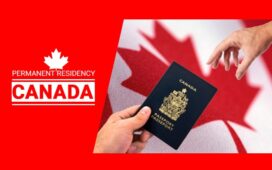The Atlantic Immigration Pilot allows highly skilled and semi-skilled foreign workers to come to Canada and work as social workers. Three out of four Atlantic provinces have a high need for social workers. If you have a job offer in the Atlantic region of Canada that is at least a year old, you may be eligible to apply for the program. Applicants must also have an appropriate educational background and have skills in one or both of Canada’s official languages.
Skills in one or both of Canada’s official languages
The skills of immigrants to Canada’s labor market depend on their proficiency in at least one of the country’s two official languages. The Canadian immigration policy has recognized that skills in both official languages can contribute to immigrants’ economic integration, as well as their opportunities to engage in social activities. In their report, Derwing and Waugh examined the relationship between immigrants’ skills in one or both official languages and their social integration.
A recent study found that immigrants with better language skills were more likely to obtain high-skilled jobs in the country. People with French or English fluency have more options and higher wages in Canada. This finding is important for a variety of reasons. First, the ability to speak both English and French can help a newcomer understand the culture in which they live and work. Second, a person who speaks both languages can communicate with children in school, which is necessary for a successful career.
Educational credentials
Educational credentials for social workers’ immigration to Canada can be obtained from any of the various skilled immigration programs in Canada. Among these, the most important is the assessment of educational credentials and professional credentials, which determine whether your educational background meets Canadian standards. Obtaining a high CRS score for your education is crucial, especially for those applying through the Federal Skilled Worker Program and Express Entry. After obtaining the necessary qualifications, you must submit your professional credentials to a regulatory body in the province of your choice.
After getting your initial certification, you can begin looking for employment. There are many opportunities for social workers, including employment in government organizations, schools, child welfare services, correctional facilities, and social housing. Other potential employment settings include correctional facilities, government agencies, private sector organizations, and counseling institutions. However, applying for a permanent residency in Canada can be a complicated and time-consuming process. It is worth it to invest some time in your education and become a Canadian social worker.
Work permit
The process for getting a work permit for social workers’ immigration to Canada differs depending on the province you wish to live in. While the provinces in which you wish to work have varying immigration rules, the federal government has a special program for those in this profession. The federal Express Entry selection system does not require job offers, and a provincial nomination almost guarantees you immigration. There are several other options available, but the federal program is the most popular.
You can apply for a temporary resident visa to come to Canada and work as a social worker. Most occupations require a work permit, but some may require additional documentation, such as a medical certificate. While applying for a work permit, make sure you know exactly what you are doing. There are restrictions on the kind of work you can do and where you can work. You may also be restricted from working at businesses that involve child sexual exploitation.




